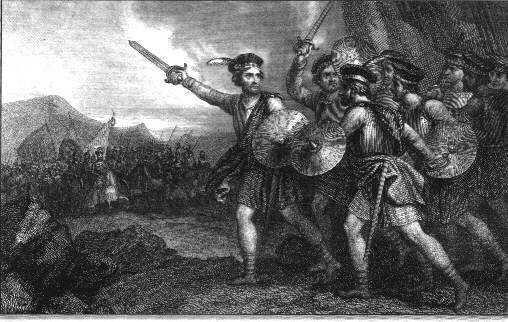Pupukahi I Holomua
- I. General Facts for Newcomers
II. History
- 2.1 Discovery & Unification
2.2 Foreign Involvement
2.3 Revolution
2.4 New Ideas
2.5 Trade Arrangements
2.6 WiP
2.7 WiP
2.8 WiP
- 3.1 Basic Geography
3.2 Environment
3.3 Climate
- 4.1 Structure
4.2 Constitution
4.3 Foreign Relations
- 5.1 Overview
5.2 Command Structure
5.3 Major Facilities
5.4 Citizenship for Service
5.5 Matériel
5.6 Grades/Decorations
- 6.1 Languages
6.2 Religion
6.3 Cuisine
6.4 Holidays & Celebrations
6.5 Music
- 7.1 Civilians
7.2 Military Personnel
7.3 Government Personnel
- 8.1 Domestic Statistics
8.2 Government Budget
8.3 Economic Details
X. Education
- 10.1 Elementary School
10.2 Intermediate School
10.3 High School
10.4 Grading Scale
- 11.1 Facilities
11.2 Spending
11.3 Regulation
XIII. Law Enforcement
XIV. Transportation
The Kingdom of Ewa Beach controls two territories throughout Judea. The small island of U'iaka, which is is in the southern Tulgian Sea, in the east. U'iaka serves as a forward operation base for naval support in the Tulgian Sea; in the case were there an enemy fleet attempting to pass through said sea, the Royal Navy units stationed there would protect Judea. U'iaka is quite small, one of the smallest territories held by a Judean nation, and although the majority of the island is reserved for the Royal Navy, there are Ewacian and U'iakan natives inhabiting the island, going through their daily life.
The other territory is H'umunkapu'a, a small piece of land on the Tairotican continent, touching the Destrian Sea. The 'mainland', as most call it, is surrounded by unclaimed lands, with several larger countries on the outskirts of said unclaimed lands. Size-wise, it is generally equivalent to the main islands in the Judean Sea, and holds just about as many people.
Roughly over 400,000 square kilometers [150,000+ sq mi], including all territories, Ewa Beach is recorded as the smallest country compared to the others in the region, with a population of just over 40,000,000 people to confirm that, standing over only a few small colonies. The majority of the Kingdom has a tropical climate. Most of the Ewacian population is spread around on the island of N'ihuan'i, and on the larger portion of the mainland, where there is a mix of tourists and natives. While in the smaller areas there are only natives. The most populated, largest, and capital city, Waipahu, is on the the island of N'ihuan'i.
Founded by Tairotican natives around 300 CE, who then became to be known as the Ewacian natives. The first record of any foreign explorers was around the summer of 1276. The explorers had landed just south of the now capital, and after a months stay, they were on their way back to their home. The ship was damaged once it left, and it was forced to return. Soon after, the explorers were all murdered, outraging their country, the Republik of Solm. They soon took control over the Ewacian lands in 1292 C.E. Over two decades later, in 1324, the Ewacian people decided to fight against their tyrannical ruler, and only four years later, Ewa Beach had gained it's independence, attempting a democracy, becoming the United States of Ewa Beach. Ewa Beach underwent three major transformations since then, once returning back to the Kingdom, then turning into the extremely violent Federation of Ewa Beach, and finally, once again, returning to the Kingdom of Ewa Beach in 2011 C.E.
While the Solmians were attempting to recover from their loss, other nations soon took interest in the islands. Around the early 1500s, traders from Trescott arrived upon the islands. As both nations were in possession of unique resources, the Ewacians agreed to trade, and for months things seemed to be going well. Horses, as well as sheep were introduced to the islands. The economy was booming, and relations with the international community were rising. Yet, in 1514, the Ewacians learned that the Trescottians had been taking advantage of the trade, taking more and paying less, and there were even several accounts of thievery. The people took action, ambushing the Trescottians in the woods. They were castrated and decapitated, then hung up and left to rot in the forest. With the cover of the trees, the traders were left there for several weeks, the smell growing worse and worse for the nearby town. The Trescottians were found, cut down, and buried properly.
In the entire time of its existence, Ewa Beach has made it its initiative to take a leading role in international and regional conflicts, and taking an avid leadership role in alliances, and regions. Once leading the great Northern Eagle Military Alliance, and other alliances, it soon took a grand role in leading Judea to victory in many cases, along with its two most loyal allies, Solm and Hobit. Additionally, it has made its presence known throughout the world in a myriad of alliances. Ewa Beach participated in the First Judean Regional War that spanned the entire region, decades later the Second Judean Regional War and has most recently been involved in the NEMA Wars and the Crimson War, an offensive bout with Tergnitz. In the very recent times, the nation has took on a more peaceful, isolationist policy. When the Second Judean Regional War first hit the news, the nation took a neutral stance, refusing to get involved in any large scale war so soon after the Ewacian Civil War. After realizing its allies needed a hand in defeating the evil nations that opposed the Sanctum, it took a more aggressive stance, supporting the Sanctum in the war.






